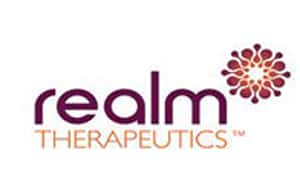
Shares in UK-listed Ream Therapeutics went into free fall yesterday after its lead drug for atopic dermatitis failed to show a benefit in a phase II trial, it’s second clinical miss this year.
The study of PR022 – a high-dose topical gel formulation of hypochlorous acid – was unable to meet its objective of showing an improvement in the Eczema Area Severity Index (EASI) score compared to placebo, according to the company, which has its headquarters in Philadelphia in the US.
As Realm’s entire pipeline is based on that active ingredient the fallout from the latest failure could be severe. In March, the company said it would end development of an ophthalmic hypochlorous acid formulation called PR013 after it failed a phase II trial in allergic conjunctivitis.
At the time, Realm said that the failure of PR013 had no relevance to its PR022 programme because the two diseases were caused by different immunologic pathways. It has always maintained that hypochlorous acid at high concentrations can downregulate various cytokines associated with inflammation.
“PR022 did not show the desired effect in this trial,” said Alex Martin, the biotech’s CEO. “We are conducting a full review to determine whether there is a path forward for our proprietary technology in atopic dermatitis, and to evaluate the implications for our acne and psoriasis programmes.”
Both of those are still in preclinical development, with acne candidate RLM023 due to start clinical testing later this year with a phase II start predicted for the first quarter of 2019. Trials of PR022 in psoriasis are due to start a little later, according to the company’s pipeline chart.
The company also thinks that its hypochlorous acid formulations could have potential “in immune-mediated diseases generally,” although programmes outside of dermatology are at the very early stages of development.
Realm had around $24m in cash reserves at the end of June, and while its R&D expenses were around $7m in the first half of the year that should reduce considerably after the twin trial failures. The company says it will provide an update on its R&D plans in light of the PR022 miss next month.
For the six-month the company reported a $10.9m loss, up from $4m in the same period of 2017. The company listed its shares on the Nasdaq last month.




